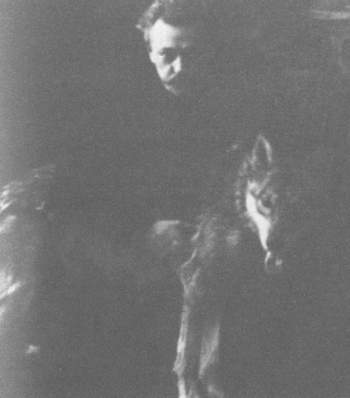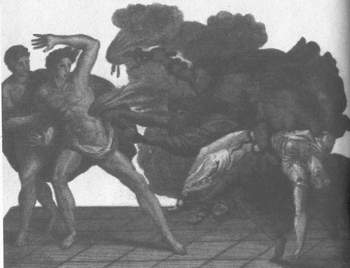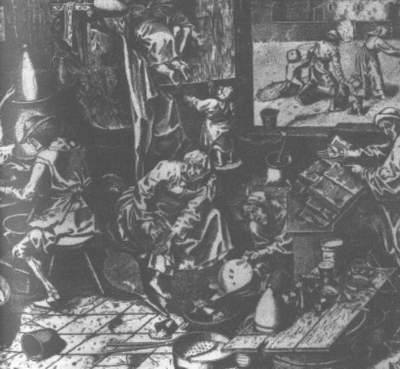
The Experimenter Effect
Can the scientist remain detached from the phenomena he studies? Or is he inevitably so bound up with them that he actually creates many of the effects that he observes?
A disturbing idea has gained currency in certain scientific circles in recent years, and it is one that conflicts completely with the basis on which most scientists conduct their experiments. Most scientists, most of the time, assume that the physical world is `out there', quite independent of themselves (though the scientist's own body, with its sense organs, is clearly a part of that world). Science is considered to be, firstly, a process of describing that physical world, and then of devising hypotheses as to how things work. If the hypotheses are sound, they stand up under test, and assume the status of established theory. For example, the movements of the planets and other celestial bodies could be predicted with considerable accuracy by Newton's theory of gravitation; and, after two centuries of successes, the theory came to be regarded as unshakeable knowledge. However, when hypotheses do not stand up under test, they are changed, or scrapped and replaced by better ones. Thus, much of Newton's work was eventually to be replaced by Einstein's fundamentally different general theory of relativity, finalised in 1915.
Most scientists would probably be willing to accept that, when constructing their theories, they are actually building mental `models' representing experience. But they would no doubt react violently to the suggestion that the realist's view is never the whole truth. And if it were suggested that mental activity could perhaps affect the results of an experiment, they would probably be completely incredulous. Indeed, they would no doubt point out that a most important step in the establishment of a scientific theory is that relevant experiments should be repeatable by other experimenters in other laboratories, in order to provide the assurance that the result obtained is not the product of chance, error or self-deception.
Admittedly, the attitude of modern nuclear physicists is perhaps a little different. In the models they have devised to explain the behaviour of elementary particles, for example, very strange things do happen. Time runs backwards, and particles may disappear at one place and reappear in another without crossing the space between. But nuclear physicists on the whole do not worry too much about the physical interpretation of their equations. They believe that, provided these lead to correct predictions as to the outcome of experiments, their interpretation does not matter. So it is that nuclear physicists are often far more open-minded than other scientists when it comes to matters of the paranormal.
Odd as it may seem, certain scientific theories also sometimes actually give room for paranormal happenings. It is an old idea that, just as everything we can learn about or become aware of in the Universe influences us, directly or indirectly - otherwise we could not gain knowledge about it - so we influence everything else in the Universe, to some degree at least. In quantum mechanics, this takes on a new twist. For instance, some of the most eminent physicists have claimed that, when a nuclear particle is observed by a scientist - or, perhaps, when a measurement is made of it by an automatic instrument - the observation directly affects the particle. If, for example, its position is measured, the particle acquires a definite position at that moment - having previously been in an indefinite, 'spread-out' state. According to this view, scientists intervene very directly in the phenomena that they study, both creating them as well as observing them.
Indeed, many psychical researchers have actually been encouraged to look for the effects of the mind on physical processes at the micro-level. One of these was Helmut Schmidt, who built a test machine using radioactive decay. The radioactive emissions from a sample of strontium 90 controlled a number of lamps arranged in a circle. When a Geiger counter recorded the arrival of radiation from the strontium, the equipment switched off the lamp that was illuminated at that moment, and then switched on a neighbouring lamp. It was a rapidly oscillating switch that determined whether the neighbouring lamp in the clockwise or in the counter clockwise direction was lit. But Schmidt's subjects were asked to try to influence the lamps to light up in a specific direction - say, clockwise - and his results indicated very strongly that they could.
A matter of belief
Psychical researchers have long noticed apparent effects of mind on matter, and many fascinating experiments have been carried out to study the phenomenon. Dr Gertrude Schmeidler found, for example, in experiments that have been repeated many times, that subjects who had a belief in the possibility of psychic phenomena were more likely to be successful. Equally remarkably, subjects who strongly disbelieved in the very possibility of such phenomena were more likely to get results that were worse than would be expected by chance. This, too, involves an interaction of an unknown type between the subject and the system that the subject is trying to observe or influence. Schmeidler called the believing subjects `sheep' and the disbelieving ones `goats'.
Psychical researchers have also put each other under scrutiny. Some researchers frequently get good results with their subjects, and are referred to as `catalysts'. (The term comes from chemistry, and refers to a substance that promotes some reaction between other substances.) Sceptics might suggest that the results of the `catalysts' are actually due to fraud or incompetence. But many of these experimenters have unblemished reputations. Other experimenters regularly fail to demonstrate effects, and have been described, unflatteringly, as `inhibitors'. Usually, such experimenters claim to be open-minded as to the possibility of psychic phenomena occurring in their experiments: if, therefore, they are causing their own lack of success, the reason may lie in their unconscious minds.
So what consequences for science in general follow from this? Suppose a scientist, who has a long cherished belief in a particular physical theory, spends a great deal of time clarifying it in his mind, and conducts experiments that are suggested by the theory: it seems possible that physical effects confirming the theory could perhaps be created by his or her very own thought processes. Now that in itself is quite a thought.

Vladimir Durov, one of the most popular stars of the Moscow State Circus at one time, is seen above with one of his trained wolves, with whom he could communicate telepathically. His abilities are said to have inspired a psychic revolution in the former Soviet Union, with remarkable results.

There are many legends in which hapless victims are pursued by paranormal beings such as ghosts. The most famous of these were the Furies of Greek legend who hounded Orestes, as depicted above. You can read more about the nature of hallucinations and a particular case of a modern girl who was stalked by such a nightmare.

The hectic quest of the medieval alchemist for the secret of life is depicted in the illustration below. As outlined on page 69, a twentieth-century researcher firmly believed he had discovered the very life stuff of the Universe.